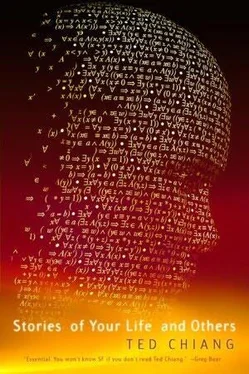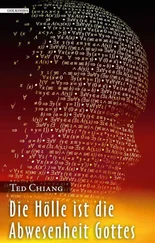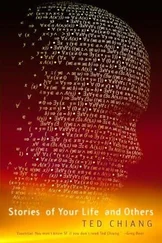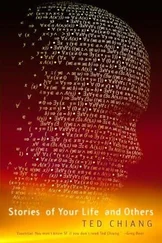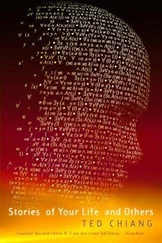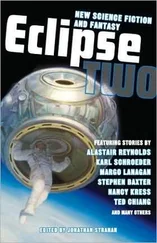——————————————————————————
There are several psychologists at the hospital studying me now. It's interesting to see how they analyze my intelligence. One doctor perceives my skills in terms of components, such as acquisition, retention, performance, and transfer. Another looks at me from the angles of mathematical and logical reasoning, linguistic communication, and spatial visualization.
I'm reminded of my college days when I watch these specialists, each with a pet theory, each contorting the evidence to fit. I'm even less convinced by them now than I was back then; they still have nothing to teach me. None of their categorizations are fruitful in analyzing my performance, since — there's no point in denying it — I'm equally good at everything.
I could be studying a new class of equation, or the grammar of a foreign language, or the operation of an engine; in each case, everything fits together, all the elements cooperate beautifully. In each case, I don't have to consciously memorize rules, and then apply them mechanically. I just perceive how the system behaves as a whole, as an entity. Of course, I'm aware of all the details and individual steps, but they require so little concentration that they almost feel intuitive.
——————————————————————————
Penetrating computer security is really quite dull; I can see how it might attract those who can't resist a challenge to their cleverness, but it's not intellectually aesthetic at all. It's no different than tugging on the doors of a locked house until you find an improperly installed lock. A useful activity, but hardly interesting.
Getting into the FDA's private database was easy. I played with one of the hospital wall terminals, running the visitor information program, which displays maps and a staff directory. I broke out of the program to the system level, and wrote a decoy program to mimic the opening screen for logging on. Then I simply left the terminal alone; eventually one of my doctors came by to check one of her files. The decoy rejected her password, and then restored the true opening screen. The doctor tried logging in again, and was successful this time, but her password was left with my decoy.
Using the doctor's account, I had clearance to view the FDA patient record database. In the Phase I trials, on healthy volunteers, the hormone had no effect. The ongoing Phase II clinical trials are a different matter. Here are weekly reports on eighty-two patients, each identified by a number, all treated with hormone K, most of them victims of a stroke or Alzheimer's, some of them coma cases. The latest reports confirm my prediction: those with greater brain damage display greater increases in intelligence. PET scans reveal heightened brain metabolism.
Why didn't the animal studies provide a precedent for this? I think the concept of critical mass provides an analogy. Animals fall below some critical mass in terms of synapses; their brains support only minimal abstraction, and gain nothing from additional synapses. Humans exceed that critical mass. Their brains support full self-awareness, and — as these records indicate — they use any new synapses to the fullest possible extent.
The most exciting records are those of the newly begun investigational studies, using a few of the patients who volunteered. Additional injections of the hormone do increase intelligence further, but again it depends on the degree of initial damage. The patients with minor strokes haven't even reached genius levels. Those with greater damage have gone further.
Of the patients originally in deep coma states, I'm the only one thus far who's received a third injection. I gained more new synapses than anyone previously studied; it's an open question as to how high my intelligence will go. I can feel my heart pounding when I think about it.
——————————————————————————
Playing with the doctors is becoming more and more tedious as the weeks go by. They treat me as if I were simply an idiot savant: a patient who exhibits certain signs of high intelligence, but still just a patient. As far as the neurologists are concerned, I'm just a source of PET scan images and an occasional vial of cerebrospinal fluid. The psychologists have the opportunity to gain some insight into my thinking through their interviews, but they can't shed their preconception of me as someone out of his depth, an ordinary man awarded gifts that he can't appreciate.
On the contrary, the doctors are the ones who don't appreciate what's happening. They're certain that real-world performance can't be enhanced by a drug, and that my ability exists only according to the artificial yardstick of intelligence tests, so they waste their time with those. But the yardstick is not only contrived, it's too short: my consistent perfect scores don't tell them anything, because they have no basis for comparison this far out on the bell curve.
Of course, the test scores merely capture a shadow of the real changes occurring. If only the doctors could feel what's going on in my head: how much I'm recognizing that I missed before, how many uses I can see for that information. Far from being a laboratory phenomenon, my intelligence is practical and effectual. With my near total recall and my ability to correlate, I can assess a situation immediately, and choose the best course of action for my purposes; I'm never indecisive. Only theoretical topics pose a challenge.
——————————————————————————
No matter what I study, I can see patterns. I see the gestalt, the melody within the notes, in everything: mathematics and science, art and music, psychology and sociology. As I read the texts, I can think only that the authors are plodding along from one point to the next, groping for connections that they can't see. They're like a crowd of people unable to read music, peering at the score for a Bach sonata, trying to explain how one note leads to another.
As glorious as these patterns are, they also whet my appetite for more. There are other patterns waiting to be discovered, gestalts of another scale entirely. With respect to those, I'm blind myself; all my sonatas are just isolated data points by comparison. I have no idea what form such gestalts might assume, but that'll come in time. I want to find them, and comprehend them. I want this more than anything I've ever wanted before.
——————————————————————————
The visiting doctor's name is Clausen, and he doesn't behave like the other doctors. Judging by his manner, he's accustomed to wearing a mask of blandness with his patients, but he's a bit uncomfortable today. He affects an air of friendliness, but it isn't as fluent as the perfunctory noise that the other doctors make.
“The test works this way, Leon: you'll read some descriptions of various situations, each presenting a problem. After each one, I want you to tell me what you'd do to solve that problem.”
I nod. “I've had this kind of test before.”
“Fine, fine.” He types a command, and the screen in front of me fills with text. I read the scenario: it's a problem in scheduling and prioritizing. It's realistic, which is unusual; scoring such a test is too arbitrary for most researchers' tastes. I wait before giving my answer, though Clausen is still surprised at my speed.
“That's very good, Leon.” He hits a key on his computer. “Try this one.”
We continue with more scenarios. As I'm reading the fourth one, Clausen is careful to display only professional detachment. My response to this problem is of special interest to him, but he doesn't want me to know. The scenario involves office politics and fierce competition for a promotion.
Читать дальше
